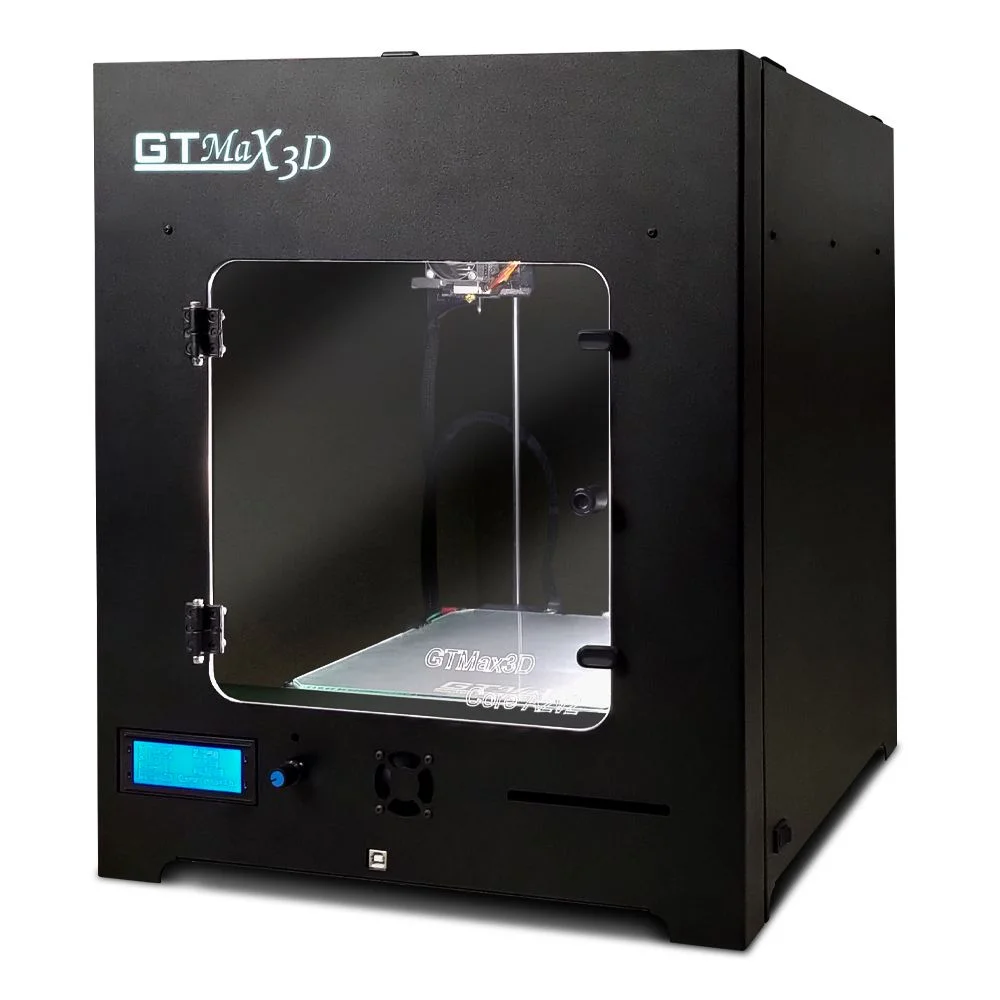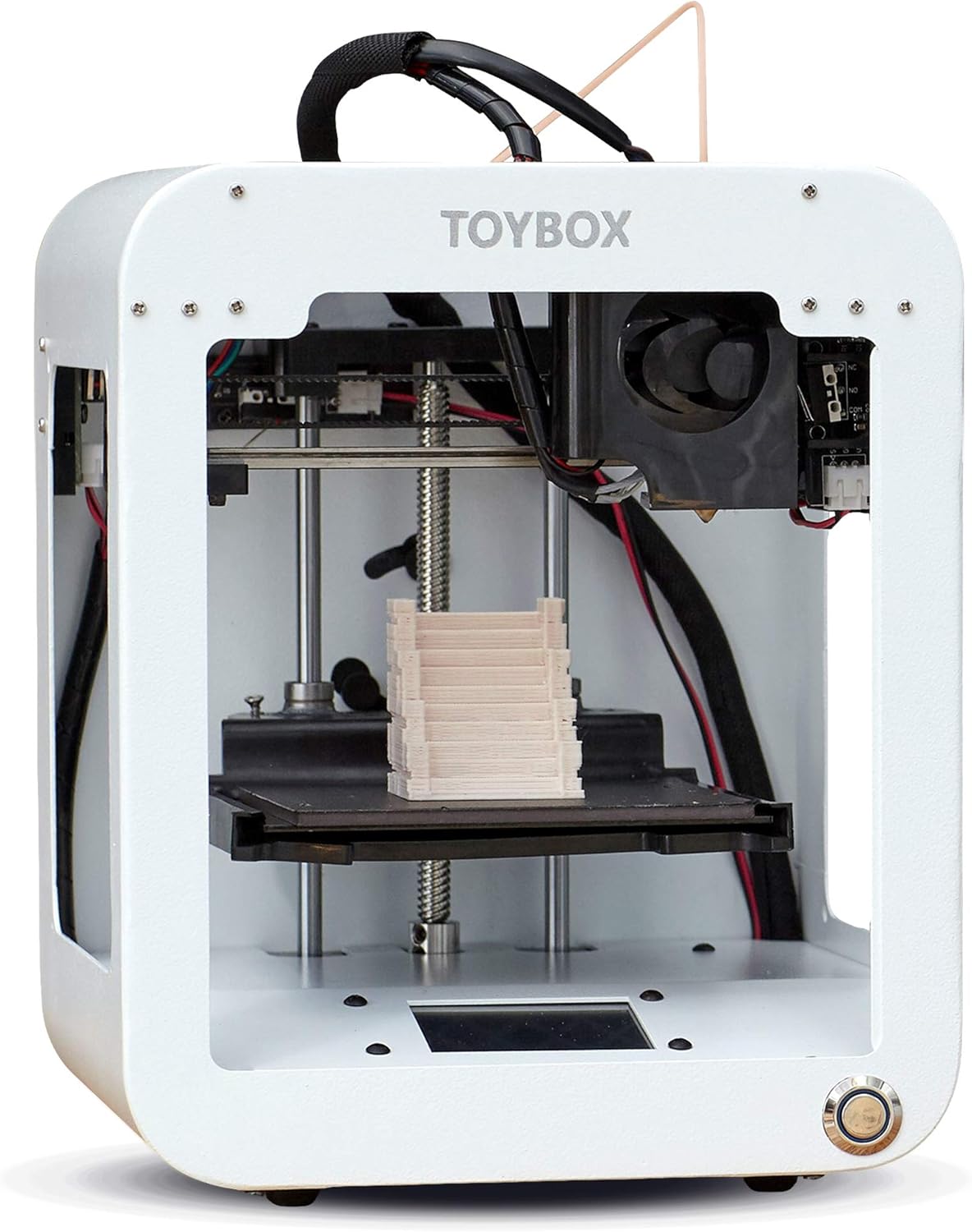Compare Core A2V2 vs Toybox
Comparison between the best 3D printers
Choose the best 3D printer at the best price. The cheapest 3D printers are here.
Buy a 3D printer here with 3D Fila.
 |
 |
|
| Model | Core A2V2 |
Toybox[BUY Toybox] |
| Printing Material | Filament | Filament |
| Buy Filament for GTMax Core A2V2 | Buy Filament forToybox Toybox | |
| Estimated price | $684,00 | $299,00 |
| Manufacturer | GTMax | Toybox |
| Release Year | 2019 | 2024 |
| Print Volume [mm] | 220x220x240 | 70x80x90 |
| Printer Size [mm] | 425x460x512 | 190x190x230 |
| Weight [kg] | 3 | |
| Power Loss Recovery | YES | NO |
| Enclosed printer | YES | NO |
| Bed Leveling | Manual | |
| Filament End Sensor | YES | NO |
| Bed type | Heated | |
| Power supply system | Bowden | Direct Drive |
| Standard nozzle | 0,4 | 0,5 |
| Maximum Nozzle Temperature [°C] | 295 | 210 |
| Maximum Bed Temperature [°C] | 135 | |
| Maximum printing speed [mm/s] | 150 | 60 |
| Filament holder | YES | YES |
| Camera for supervision | NO | NO |
| Recommended filaments | PLA, PETG, Tritan, Flex, ABS | PLA |
| Recommended slicers | Cura, Simplify, Slic3r, IdeaMaker | Toybox |
| Maximum Resolution [mm] | 0,05 | 0,2 |
| Processor | ||
| Display | Mono | Touchscreen 2,4'' |
| Power Supply | ||
| Connectivity | SD / USB | Wi-fi |
| Operating systems | Windows, Mac, Linux | iOS, Android |
| Date of registration in the system | 2022-11-12 | 2024-08-06 |
| Release date | 2019 | 2024 |
| Extra features | The GTMax3D ProCore A2v2 is a compact and robust 3D printer with a printing area of ??220 x 220 x 240 mm. It offers high print quality, ranging from 0.05 mm to 0.32 mm. Its features include automatic filament detection and changing, travel speed of up to 300 mm/s, and a heated aluminum bed with a glass top. It has automatic bed leveling with 16 points and an all-metal hotend that reaches up to 298°C. The printer has a carbon steel frame with electrostatic painting, is automatic bivolt and has connectivity via USB and SD card. The Bowden system and core xy kinematics complete its advanced features. | The Toybox 3D printer is an excellent option for children and beginners. Easy to use, with intuitive setup and simplified operation via an app. The Toybox allows you to print thousands of toys and projects through a user-friendly interface. It has a removable magnetic table that makes it easy to remove printed objects. The filament is PLA, safe for children, and the printing is reliable and error-free. It also offers custom design options, allowing you to create and print drawings and photos. |
| Support for multiple colors and materials (AMS and CFS) | NO | NO |
Notes * |
||
| Cost-benefit | 6 / 10 | 6 / 10 |
| Hardware | 2.5 / 10 | 0.8 / 10 |
| Tela | . | . |
| Print volume | 3 / 10 | 3 / 10 |
| Performance | 1 / 10 | 0 / 10 |
| [BUY Toybox] |
Conclusion |
| In conclusion, the comparison between the Core A2V2 and the Toybox 3D printers highlights key differences in functionality, intended user base, and overall value. The Core A2V2 is a more advanced option designed for experienced users seeking a larger print volume, higher temperature capabilities, and advanced features like power loss recovery and filament detection. This model is better suited for a diverse range of materials and offers the flexibility needed for complex projects. However, it comes at a significantly higher price point. On the other hand, the Toybox is designed with simplicity in mind, making it ideal for children and beginners. Its user-friendly app and focus on intuitive operation allow users to create fun and educational prints without the technical complexities associated with more advanced printers. While it excels in ease of use, it lacks many of the advanced features found in the Core A2V2, resulting in more limited print capabilities and lower print quality. Ultimately, the choice between these two printers depends on the user's specific needs. For those looking for an entry-level printer suited for basic projects and safe for children, the Toybox is an excellent choice. Conversely, those seeking higher performance and versatility in 3D printing should consider the Core A2V2, despite its higher cost. Each printer offers solid value within its respective market, catering to different user experiences and expectations. |

